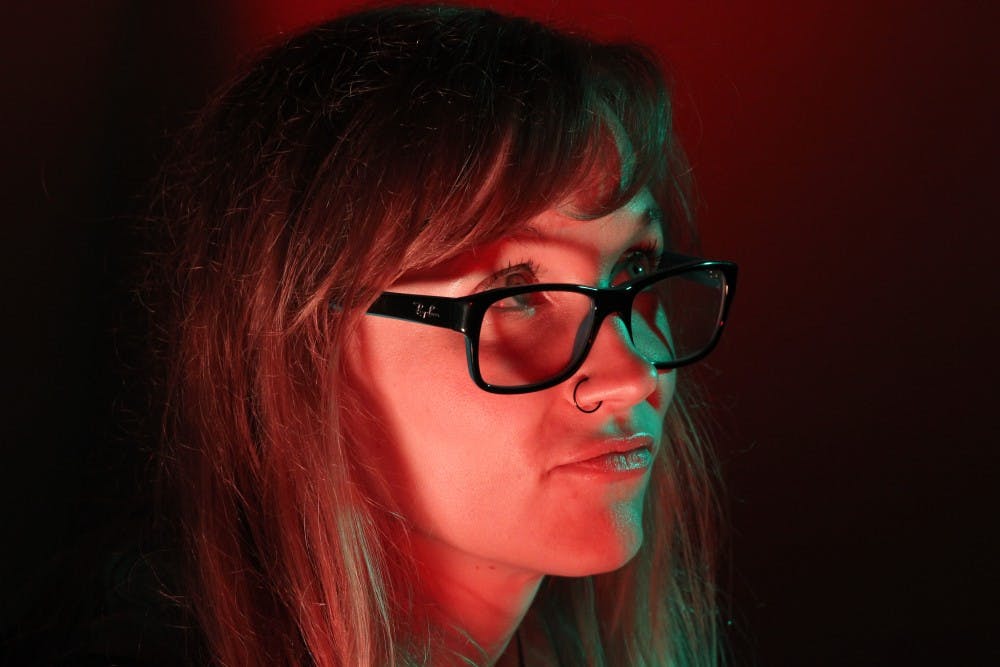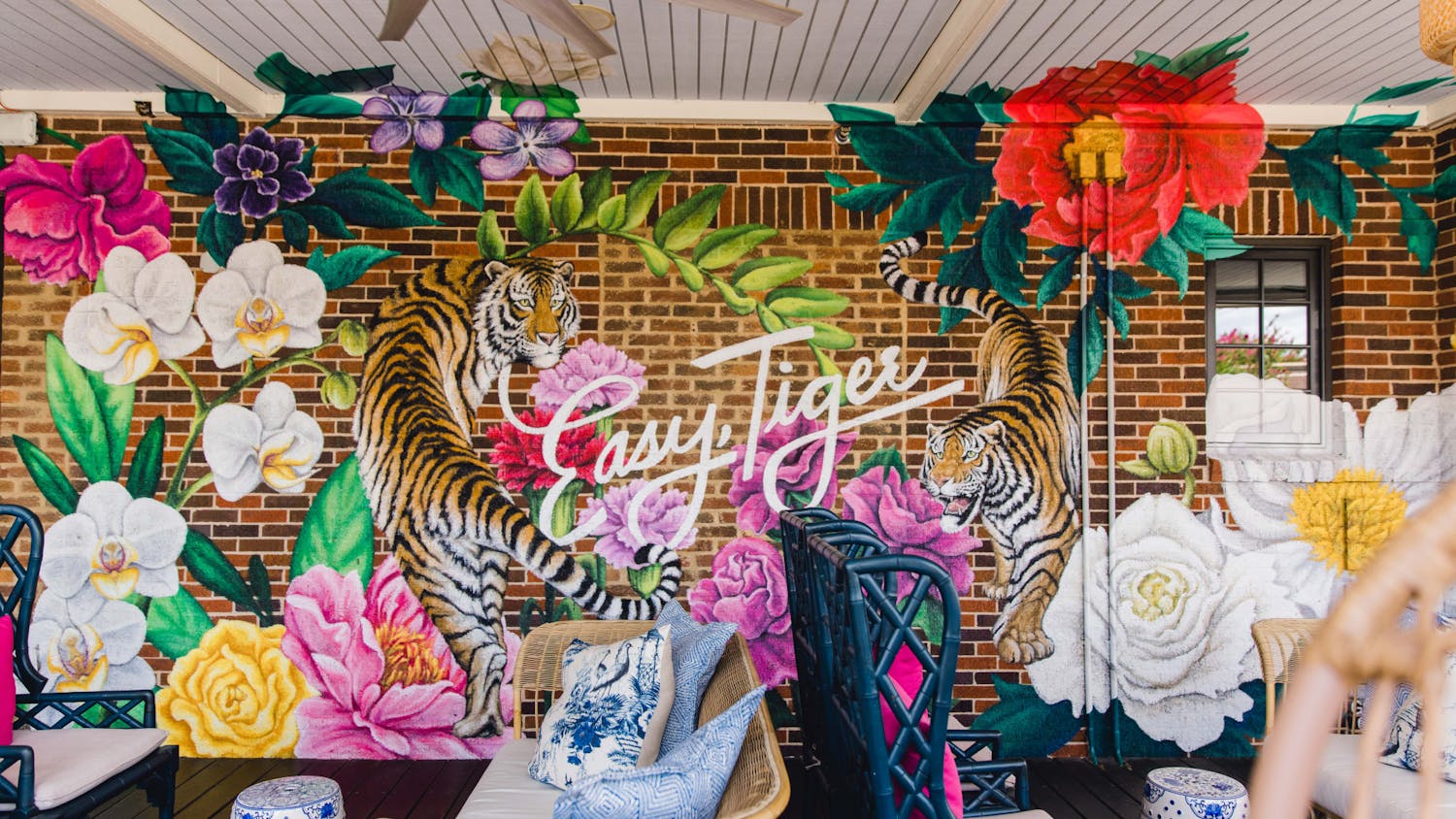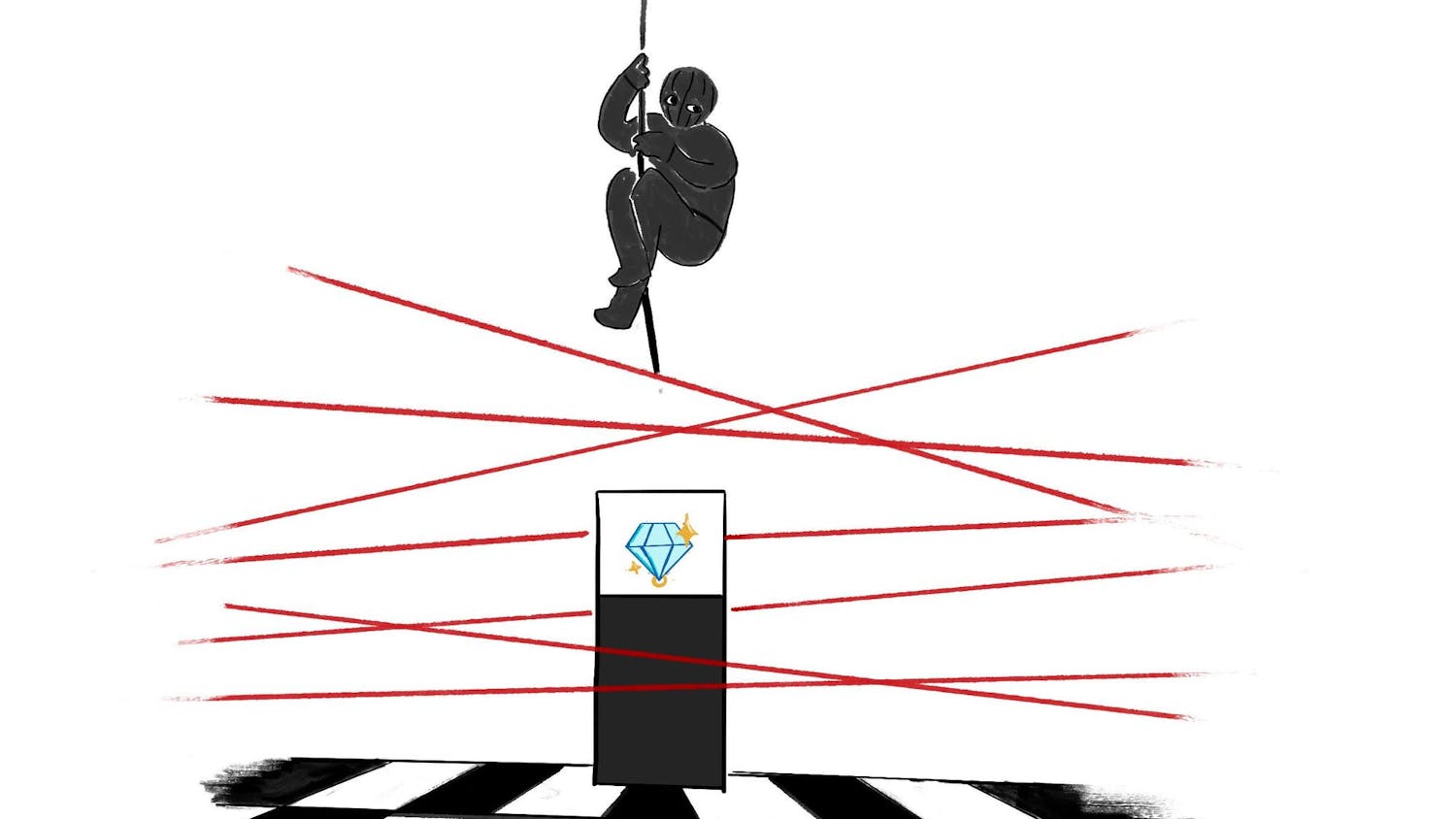Alyssa Ross is an English instructor at Auburn, but lately, her passion is genetics. Her research has led her to be knowledgeable about things like CRISPR, a gene-editing technology that is theoretically capable of gene editing embryos or even adult humans. Ross also is intrigued on the kinds of genetic editing imagined by people like geneticist George Church, who envisions modifications for a genetically ideal astronaut, and in astronomy and physics.
This level of scientific interest wasn’t an obvious jump for Ross.
“I think I got out of college only having to take two science courses, and they were both environmental science,” she said.
However, her current project, a science -fiction novel, deals with genetic modification.
“Reading through a lot of these densely scientific texts to research for my sci-fi novel has been an interesting experience for sure,” she said.
This sci-fi novel is not Ross’ first foray into scientific research. Her writing style is self-described as research heavy, as she worked on two poetry collections— one based on human anatomy and another about female astronomers at Harvard in the late 1800s. The subject matter led her, naturally, to look into astronomy and genetics. Through research, she has developed a passion for the potential of the sciences.
However, Ross never pursued the sciences academically. Instead, she hopes to use her own skills to drive more people toward the sciences.
“I want (the sci-fi novel) to feel like something that we’re on the cusp of doing, so that readers are inspired to do what I can’t do,” she said. “Because you know, at this point, I’m in my 30s, and I did not pursue the sciences. But I see so much merit in that if there’s any way I can contribute to those goals then, in my own creative way, I hope to do that.”
Ross is specifically concerned about the imbalance of encouragement men and women are given to pursue the sciences.
“I think women aren’t always pushed in the direction of the sciences,” she said. “I think we’re working to change that now, but that’s really one of the things that inspired me to want to write a sci-fi novel. … I think if women saw themselves reflected more in that genre, then we could inspire women to actually hit the books as far as science goes.”
As far as the courses she teaches at Auburn, she likes to marry her curriculum and her current research interests.
“For me to keep my attention on my students but also progress my work, I find that I need the two to be symbiotic, and that’s what I’ve done,” Ross said.
This marriage between her research and her teaching is clear from the readings she currently teaches in her American literature. She takes inspiration from works, with the first influencing her primarily on the basis of its strong female protagonist and the latter providing the research and scientific grounding she strives to achieve in her own work. The sci-fi novels have not always been the kinds that she teaches, though, and are not the only kinds she plans to assign to her students in the future.
“I do like to switch up my teaching,” she said. “I like to teach new classes or different classes. I always keep some of the same texts that are really close to my heart, but I imagine in five years, my list of texts may be completely different.”
Beyond science fiction, she has an interest in fairy tales and folk tales, which inspired her doctoral dissertation, and in graphic novels. Besides teaching different literary works, she changes things up in her teaching by doing an entirely different sort of classes: culinary. She teaches periodic jam-making workshops for Auburn Outreach, in which she is able to explore her love of science — “jam (is) a lot of chemistry” — and an interest in food science and nutrition, which she also tries to bring to the forefront in her freshman English Composition classes. Additionally, Ross keeps herself busy by periodically teaching for the Alabama Prison Arts program, which she said is rewarding.
“A lot of my friends tell me, ‘Alyssa, you could be so much more successful if you would just focus on one thing at a time,’” she said. “It may be a product of our times that we can’t pick one thing and stick with it. And I also think as people live longer, it becomes more unrealistic to pigeon-hole ourselves into one specific path or passion. If we live to be 90 or 100, you don’t wanna be doing the same thing for 90 years.”
Ross will be reading from her poetry chapbook, The Harvard Computers, at the Jule Collins Smith Museum on Thursday, Oct. 4, at 12:30 p.m.
Do you like this story? The Plainsman doesn't accept money from tuition or student fees, and we don't charge a subscription fee. But you can donate to support The Plainsman.





